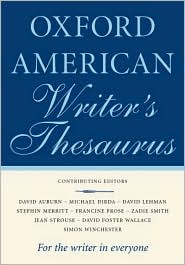An Iffy Post: DFW on Grammar

“Most dictionaries’ usage notes for if are long and involved; it might be English’s hardest conjunction. From experience born of repeated personal humiliation, I can tell you that there are two main ways to mess up with if and make your writing look weak. The first is to use if for whether. They are not synonyms—if is used to express a conditional, whether to introduce alternative possibilities. True, abstract grammatical distinctions are hard to remember in the heat of composition, but in this case there’s a great simple test: If you can coherently insert an ‘or not’ after either the conjunction or the clause it introduces, you need whether. Examples: He didn’t know whether [or not] it would rain; She asked me straight out whether I was a fetishist [or not]; We told him to call if [or not? no] he needed a ride [or not? no]. The second kind of snafu involves a basic rule for using commas with subordinating conjunctions (which are what if is one of). A subordinating conjunction signals the reader that the clause it’s part of is dependent; common subordinating conjunctions include before, after, while, unless, if, as, and because. For most kinds of sentences, the relevant rule is easy and worth remembering: Use a comma after the subordinating conjunction’s clause only if that clause comes before the independent clause that completes the thought; if the subordinating conjunction’s clause comes after the independent clause, there's no comma. Example: If I were you, I’d put down that hatchet vs. I’d put down that hatchet if I were you.”
“Only the OED has both definitions and in-context samples for just about every significant word in the language. Actually, why not screw appearances and just state the obvious: No really serious writer should be without an OED, whether 20 volumes, a CD-ROM, or online. Nothing else comes close.”
(from the “hairy” entry)
Have you read the essay "Authority and American Usage"?
ReplyDeleteI read the version that was originally published in Harper's (called "Tense Present: Democracy, English, and the Wars over Usage"). (Someone made it available here.) I don't know if and how it changed when it joined Consider the Lobster. It's a really good essay. The language loosens up as it proceeds, but the wit is maintained at healthy levels throughout the text. The footnotes are a trove of funny remarks and insightful comments. Good stuff. The political implications of usage are compellingly presented.
ReplyDeleteIn fact, what I wanted to call attention to in this short post was that great Oxford American Writer's Thesaurus. It's a great resource for writing. In it, Wallace writes short essays (like the one on if) along usage notes written by none other than Bryan Gardner, the author of the usage dictionary Wallace reviewed in "Tense Present."